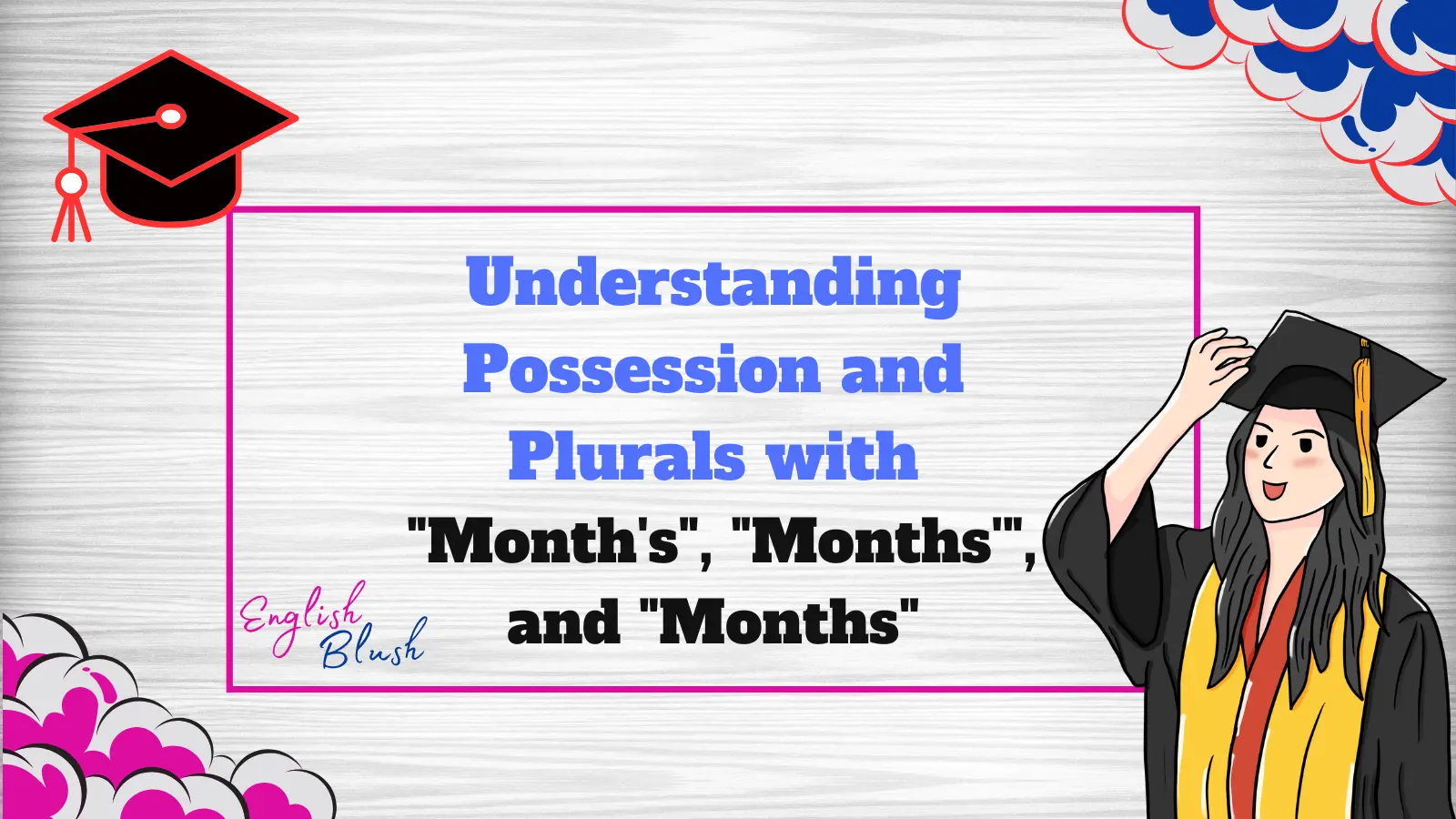When learning English, one of the key concepts to understand is how to form possessive nouns and plurals. This becomes especially important when we’re working with words like month, which change depending on whether we’re talking about one month or many months. In this article, we’ll focus on understanding the difference between month’s, months’, and months.
Let’s break down how these forms are used:
Table: The Three Forms of “Month”
| Term | Example of Use | Explanation |
|---|---|---|
| Month’s | The month’s weather was beautiful. | Singular possessive: Refers to something belonging to one month. |
| Months’ | The months’ weather was unpredictable. | Plural possessive: Refers to something belonging to more than one month. |
| Months | There are 12 months in a year. | Plural form: Refers to more than one month. No possession involved. |
What Does Each Form Mean?
Month’s (Singular Possessive)
This form is used when talking about something belonging to one month. We add ‘s to the noun when it’s singular. Here are some examples:
- The month’s weather was quite warm.
- Here, “month’s” means that the weather belongs to one specific month.
- I don’t remember the month’s events clearly.
- In this case, we are talking about the events that happened in one particular month.
Months’ (Plural Possessive)
When we talk about multiple months, but want to show possession (that something belongs to those months), we use months’ with just an apostrophe at the end (no “s” after the apostrophe). Here are a couple of examples:
- The months’ events were filled with surprises.
- Here, months’ shows that the events belong to more than one month.
- The months’ weather was unpredictable.
- This suggests that more than one month had weather that was hard to predict.
Months (Plural)
Lastly, the form months is just the regular plural. It does not show possession—it’s just used when we want to refer to more than one month.
Examples of months:
- There are 12 months in a year.
- Here, months is simply the plural form of the word “month,” and we aren’t showing that anything belongs to the months.
- I’ve lived in this city for five months.
- Again, we’re simply talking about a number of months, not possession.
More Examples to Clarify
To further help you understand, let’s look at some more examples of month’s, months’, and months used in sentences.
Month’s:
- The month’s flowers were in full bloom. (The flowers belong to one month)
- I will finish this project by next month’s deadline. (The deadline belongs to one month)
Months’:
- We spent the summer vacation months’ worth of savings. (Savings belong to multiple months)
- Months’ worth of preparation went into this event. (Preparation is related to multiple months)
Months:
- There are 31 days in a month. (Plural of month, no possession)
- She worked there for six months before quitting. (Plural of month)
Why Is It Important to Understand These Forms?
Understanding the difference between month’s, months’, and months is important for clarity in writing and speaking. Knowing when to use the correct form can help avoid confusion, especially when you’re describing situations where something belongs to a month or several months.
Simple Tips to Remember:
- Month’s (singular possessive): Something belongs to one month.
- Months’ (plural possessive): Something belongs to more than one month.
- Months (plural): Referring to more than one month (no possession involved).
Conclusion
In conclusion, by using these forms correctly, you’ll be able to communicate with more precision. Always ask yourself, “Is this about one month or more than one?” and “Is this showing possession?” Once you understand when to use each of these forms, your writing and speaking will be more accurate and effective. Whether you’re talking about a single month’s events or many months’ worth of changes, this guide should help clarify the differences between month’s, months’, and months.





